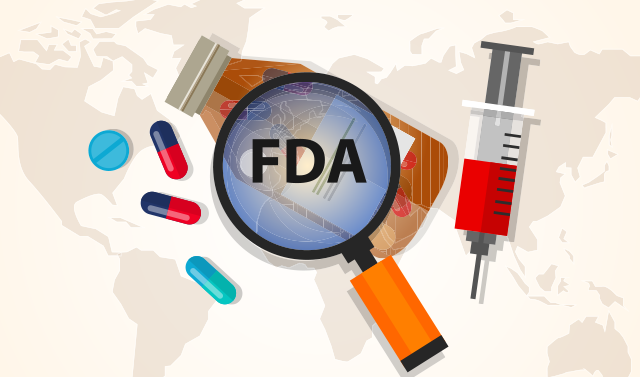- Safety & Recalls
- Regulatory Updates
- Drug Coverage
- COPD
- Cardiovascular
- Obstetrics-Gynecology & Women's Health
- Ophthalmology
- Clinical Pharmacology
- Pediatrics
- Urology
- Pharmacy
- Idiopathic Pulmonary Fibrosis
- Diabetes and Endocrinology
- Allergy, Immunology, and ENT
- Musculoskeletal/Rheumatology
- Respiratory
- Psychiatry and Behavioral Health
- Dermatology
- Oncology
FDA restricts hydroxychloroquine use, plus other COVID-19 updates
Agency says the anti-malaria drug can cause heart rhythm problems.

FDA warned about serious heart rhythm problems in COVID-19 patients treated with hydroxychloroquine or chloroquine, often in combination with azithromycin.
The drugs should only be used to treat COVID-19 patients who are hospitalized or are in clinical trials, so doctors and screen and supervise them, the agency said in a new Drug Safety Communication.
Related: FDA clears first home COVID-19 test, plus other top news
“The FDA is aware of reports of serious heart rhythm problems in patients with COVID-19 treated with hydroxychloroquine or chloroquine, often in combination with azithromycin and other QT prolonging medicines. We are also aware of increased use of these medicines through outpatient prescriptions,” the agency said in a press release. “Therefore, we would like to remind health care professionals and patients of the known risks associated with both hydroxychloroquine and chloroquine.”
Hydroxychloroquine and chloroquine have not been shown to be safe and effective for treating or preventing COVID-19, the agency said. “They are being studied in clinical trials for COVID-19, and we authorized their temporary use during the COVID-19 pandemic for treatment of the virus in hospitalized patients when clinical trials are not available, or participation is not feasible,through an Emergency Use Authorization (EUA)."
Hydroxychloroquine and chloroquine can cause abnormal heart rhythms such as QT interval prolongation and a dangerously rapid heart rate called ventricular tachycardia.
“These risks may increase when these medicines are combined with other medicines known to prolong the QT interval, including the antibiotic azithromycin, which is also being used in some COVID-19 patients without FDA approval for this condition. Patients who also have other health issues such as heart and kidney disease are likely to be at increased risk of these heart problems when receiving these medicines,” FDA said in the press release.
Related: Trump, Fauci disagree on the effectiveness of hydroxychloroquine
In other important COVID-19 news:
1. Gilead Science’s clinical trial of the rheumatoid arthritis drug remdesivir was not effective in treating COVID-19, according to a draft of a Chinese study that was inadvertently posted to the World Health Organization (WHO) web site early, TIME reported.
Remdesivir was “not associated with a difference in time to clinical improvement,” according to STAT, and there was almost no difference in the fatality rate of patients given remdesivir compared to those who received the placebo, TIME said.
However, the study had to be terminated early due to low enrollment. “We believe the post included inappropriate characterizations of the study. The study was terminated early due to low enrollment and, as a result, it was underpowered to enable statistically meaningful conclusions,” Merdad Parsey, MD, chief medical officer at Gilead Sciences, told TIME. “As such, the study results are inconclusive, though trends in the data suggest a potential benefit for remdesivir, particularly among patients treated early in the disease.”
2. There is no evidence that people who have recovered from COVID-19 are protected from a second infection, WHO tweeted, NBC News reported. Still, most studies suggest that people who have recovered from the infection have antibodies to fight the virus, WHO said.
WHO advised against the use of “immunity passports,” which have been suggested in some countries as a way to allow people to travel or return to work, NBC News said.
There is not enough evidence about the effectiveness of antibody-mediated immunity to guarantee the accuracy of such passports, WHO said.
Drugs to Watch: Mental Health Conditions
April 11th 2024The FDA is reviewing two novel therapies: a psychedelic-assisted therapy for PTSD with a target action date of Aug. 11, 2024, and therapy for schizophrenia that does not directly block dopamine receptors with an action date of Sept. 26, 2024.
